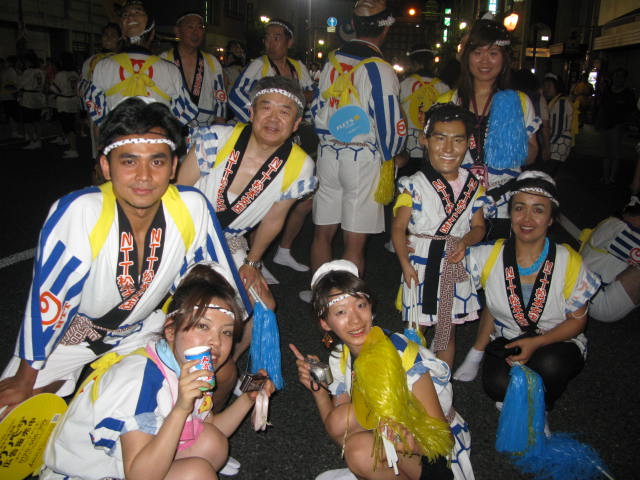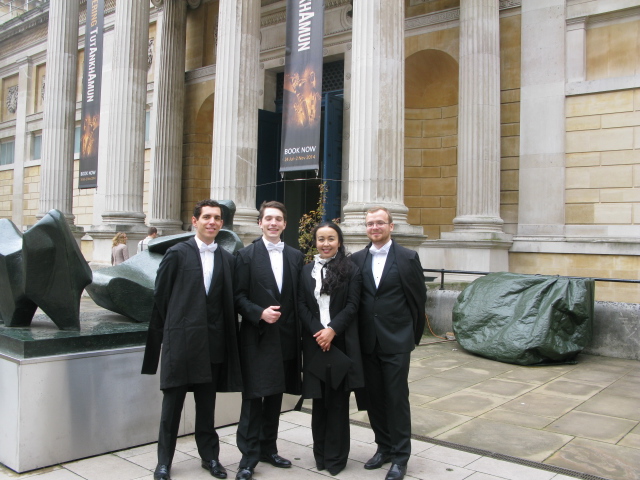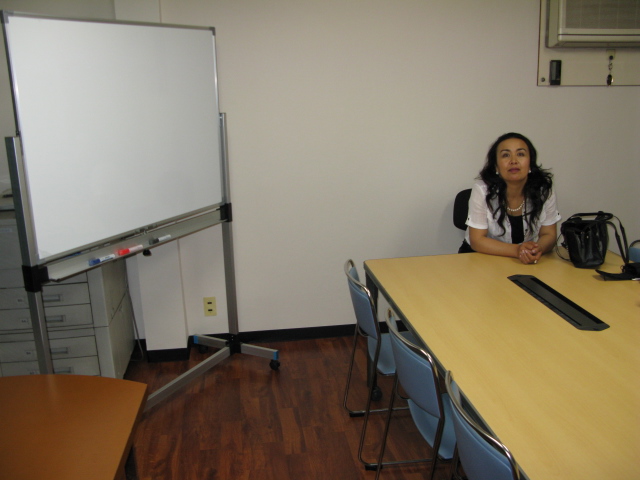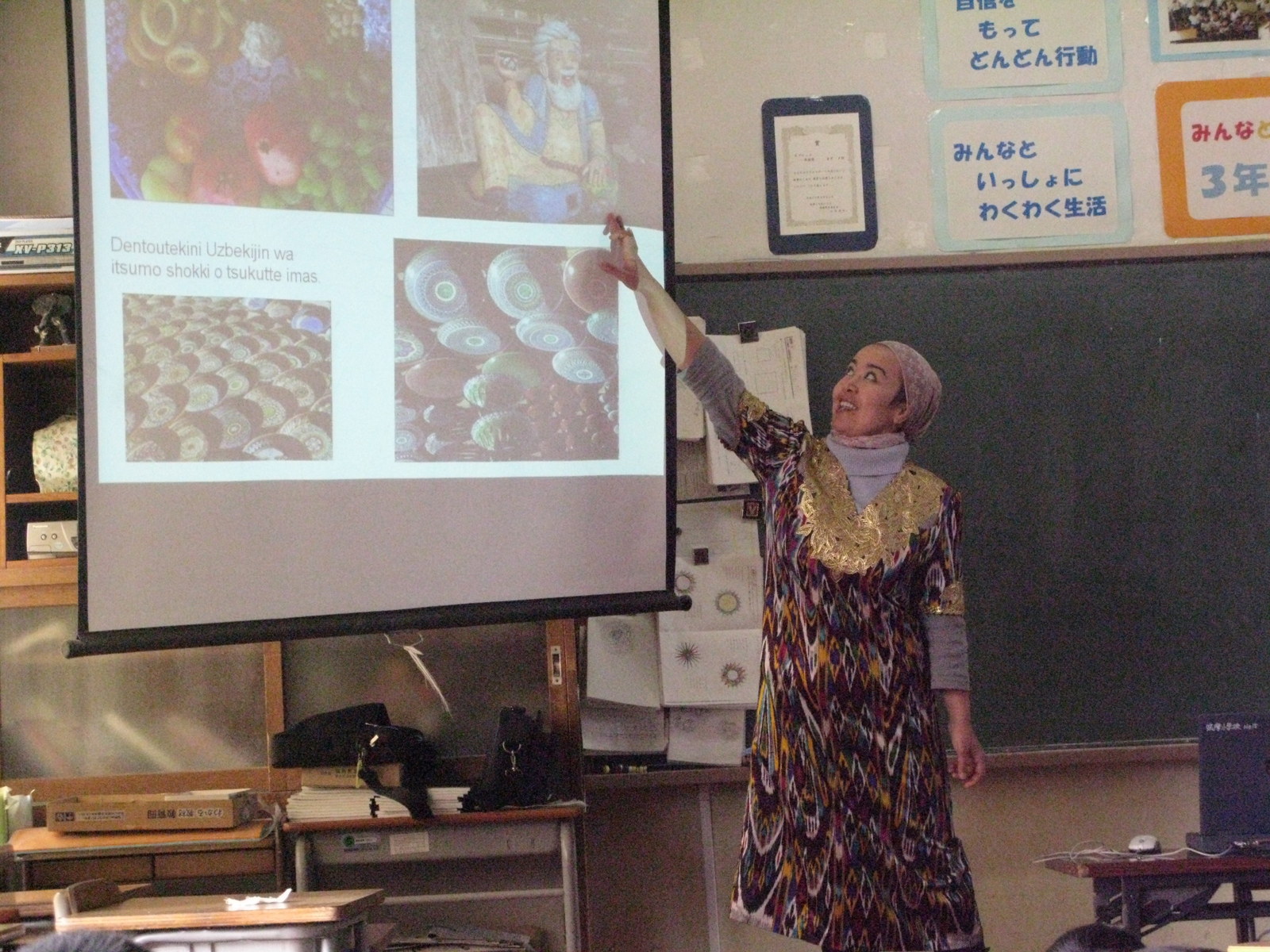
My journey of a researcher has been quite steep: an undergraduate student I was caught up with the challenges followed the collapse of my country, which meant the collapse of educational, financial and healthcare systems. My graduate studies took place during transition period that shortly followed and was characterized with still unstable infrastructure. Therefore, a promising researcher at Novgorod University, Russia, I had to mute down my research aspirations to focus on numerous professional opportunities born by the challenges. I’ve been working in various locations that put me in completely different settings.
Russia
Yet, even then, considering the time and my start-line, I feel I was blessed with several opportunities that laid a firm and lasting foundation for my passion to holistic education and paved my professional and research paths that I’ve been enjoying. Namely, my first-hand international academic and professional experience in the USA, UK, Russia, and Uzbekistan have revealed diverse perspectives that introduced me to the holistic approach. First, when encountering native people in Arizona, US, I became interested in their methods of growing leaders and upbringing in general. Particularly, I’ve admired the wholeness of everyday interactions between senior and junior members of native communities. Those experiences have spurred my passion towards students’ development and their personal growth. At the Lyceum of Education in Russia, being exposed to various teaching methodologies I committed to organic and “slow-cooking” teaching styles. This meant teaching along connected syllabi and using relevant materials. Second, in my undergraduate, and graduate studies I navigated different avenues of schools in Education choosing the alternative methods supervised by Robert Hunter, a lecturer from the School Without Walls in Rochester, US. Finally, I revisited my methods within the course on ‘Aboriginal Education’ by the University of Toronto, where native Canadians shared their mastery in teaching. These events helped me in addressing my students’ interests around stressless and friendly activities in the classroom. Similarly, they taught me to be a student in the classroom, which meant to receive as I give. This perspective has furthered my positive teaching experience internationally
Uzbekistan
An undergraduate student, I opened my courses, where I tutored students following alternative methods of teaching English as a second language. While my courses proved to be effective and successful, soon I was hired first by an international project of EBRD, then by the Embassy of Switzerland in my country, and that’s what defined my career in diplomatic missions and international organizations for the next twenty years. Even though I was far from teaching, I researched extensively for various projects. First, at the Swiss Embassy, my duties of Assistant to Cultural Attaché included the studies of intercultural issues that furthered the dialogue between Switzerland and my country. Second, my ethnographic skills and first-hand experience of studying in the USA aided in succeeding as the Programs Manager at the American Councils of International Education (ACCELS). I focused, primarily, in supporting the finalists of educational and leadership programs in overcoming cultural barriers in America and reverse cultural shock upon their return.
Japan
In Japan, I found myself in an absolutely different and unique professional setting. While I had to start everything from scratch (starting from how to ride a bicycle all the way to how to deal with Japanese students), my passion to holistic approach was that anchor that didn’t fail me in various roles: from that of an ALT at elementary and high schools to a teacher at public and private universities for the last fourteen years. Indeed, the understanding that student development is where learning comes across personal, psychological, and emotional development or personal growth was helpful. Prioritizing thoughts and findings of my students my job was to encourage and aid. Therefore, students learned collaboratively, actively, and in line with my regular feedback. This approach has eased the fear of Japanese students against English in general and my communication with them in particular.
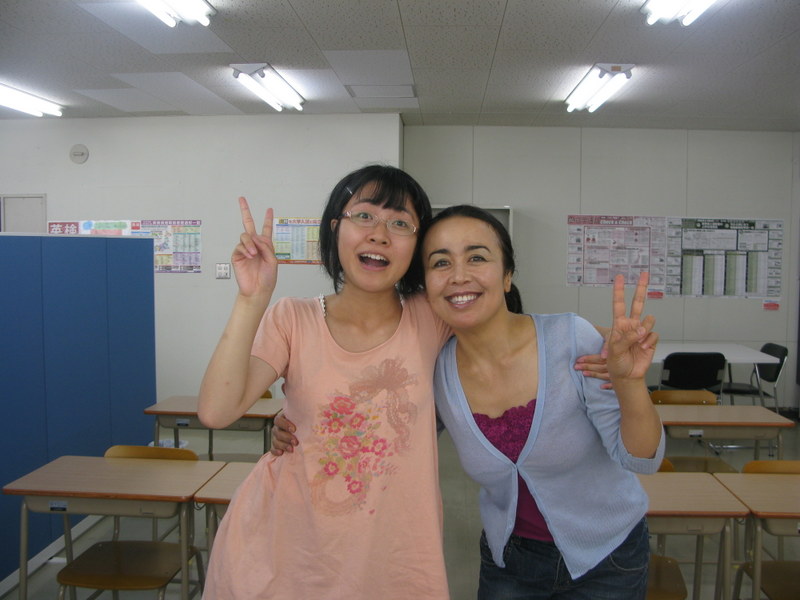
In the methodology of collaboration, in my view, the partnership represents inclusive, equal and accepting teacher-student relationship. Especially, it is worth pointing out that: students and teachers view matters on equal terms; students have space and time to choose; concern and inclusion coupled with trust nest theoretical and practical activities, which projects a positive experience and unexpected high results. Such a relationship furthers bonds. Naturally, once barriers drop behind, students consider a subject positively, regardless of whether it is ‘important’ or not. Teaching, therefore is not that linear and rigid where a teacher points in a certain direction for a student to follow. On the contrary, it’s about working together with students towards building their attachment to the subject and inclusion into the learning process
As I said, professional activities mainly represent my profile. Below, I’m going to introduce a rather humble part related to my academic research activities.
Russia
My research has been developing in two major strands: practitioner research and theoretical studies. The former was nourished by diverse cultural and social studies together with alternative methods of education mainly outlining my academic explorations. Being schooled in the former Soviet education system, as a student, I could see the flaws of methodologies and approaches towards teaching foreign languages, which resulted in my lack of interest in foreign language classes. The rare opportunity of studying in the USA as a high-school exchange student has revealed completely different ways to teach foreign languages. The dramatic difference between the Soviet and American systems has instigated my scholarly interest in exploring alternative ways of teaching.
I was exposed to research opportunities early when I entered the Novgorod Educational Lyceum that prepared future educators for their further university studies. Therefore, in my undergraduate studies at the Novgorod State University, I concentrated in methodology of teaching English at an elementary school in Russia, where, as a part of practical course at my University, I worked as an assistant teacher. Unfortunately, my research lasted only two years, since after the collapse of the Soviet Union my family chose to return to Uzbekistan.
Uzbekistan
Mainly an agricultural appendage of Russia, hinterland of Uzbekistan wasn’t the best place to continue my studies: everything was different beginning from the academic mentality to the lack of basic books and sources. That is when I decided to concentrate on translation as a way to improve my English, and that is how and when I put on hold my growth as a researcher. This is not to say, however, that I was disinterested in any kind of academic activity. For the graduate examination, I presented my MA report with the results of Practical course of teaching English at a secondary school. In particular it contested that the effectiveness and positive experience of students was affected by relevant content of lessons. Particularly I argued that the textbooks pupils used then, was irrelevant to their lives, which caused disinterest and indifference of students. While the same topics presented through the lens of their biographies, I contended further, significantly contributed to augmenting their vocabulary, polishing their pronunciation and, most importantly, constructing positive experiences in the classroom. My research aimed at lowering stress of students in overcoming language barriers. It showed that students could easily overcome language barriers in classes with non-traditional teaching methods. Furthermore, it was suggested that alternative methods led to long term memory and increased stress tolerance.
Japan
In Japan, my initial goals were around adjusting my teaching style and establishing the firm bridge between myself and my students. While this meant conducting research on various levels, publishing was not the part of the experience. Further, when I stood on both feet with confidence, as a part-time employee, I was not allowed to publish my findings considering that adjunct teachers are considered to be “outsiders”. Therefore, I mainly concentrated in theoretical research exploring various research methodologies, such as Critical Discourse Analysis, Critical Genre Analysis, Corpus Studies, Autoethnography. Hence, teaching as an adjunct faculty since 2012 in Japan, has helped me develop insight into various aspects of teaching English in Japan-based higher education system.
UK
Having become a confident successful teacher in Japan, I felt it was high time to let free those aspirations that I put on hold back in Russia. My next goal was the University of Oxford. At Oxford, while earning my Master of Philosophy degree, I challenged prevailing intercultural discourses around Muslim communities in the West. In particular, I was interested in the problems of Muslim identities and their assimilation in the West. I drew on an in-depth case study of socio-cultural interdiscursivity surrounding person-making in a Muslim community of Margilan. Yet, my positive experiences in the highly competitive environment of Oxford University developed in research experiences outside of my thesis. Here, not only was I able to study and be among the top students of my department – giving presentations in Oxford, Cambridge and internationally – but I also managed to extend my research experience in contributing to dialogues related to countries of European community and Middle East, by assisting in the organization of research events at the three regional centers of St Antony’s College: the European Studies Center; the Middle East Center and the African Studies Center. Here, I come across famous scholars, such as Professor Tariq Ramadan, Professor Kalypso Nicolaidis, and Professor Timothy Garton Ash. My extensive research activities further were enriched through participating at various research societies of Oxford University including Oxford University Anthropology Society, Free Speech Debate Project in Oxford, and Oxford University Islamic Society.
Japan
In my current studies towards a PhD degree, I explore the topic of neoliberalism and globalism ideologies on identities and representations in higher education. Through various research tools I explore the effects of neoliberalism and marketization on the academic profession by examining adjunct positions in Japan-based universities. Since 2020 I’ve been fortunate to academically collaborate with Dr. Theron Muller, Associate Professor at Toyama University. I’ve been exploring various research avenues with Dr. Muller while collaborating on several research papers. Our first original research has resulted in a recent successful collaborative presentation at the ESBB conference in Oman (December, 2021). In addition, our paper was accepted by the SCOPUS indexed journal Ilha do Desterro, while our second manuscript is under the review of ESBB journal.
